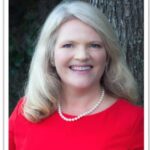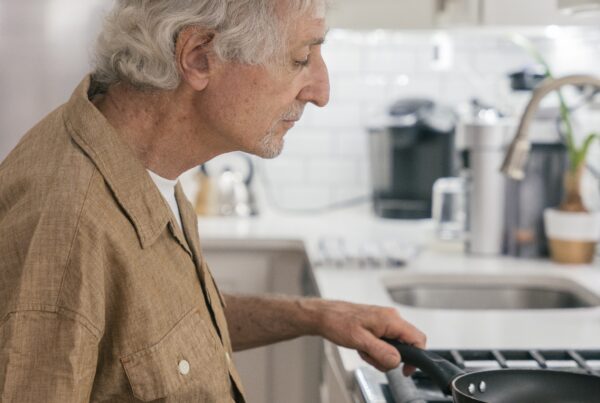by Karen Shirer, Ph.D.
 In most cases, little can be done to prevent natural and technological/responsible parties (man-made) hazards and disasters, but a great deal can be done to prepare military families before disasters occur. A recent OneOp Family Transitions blog post by Jenny Rea, Preparing Military Families for Natural Disasters by Utilizing Resiliency Skills, highlighted that all military service members receive emergency preparedness training. But many of them and their families are at risk for negative impacts from hazards and disasters due to lack of planning. When military families are transitioning or caring for family members with disabilities, they face even greater risk from hazards and disasters.
In most cases, little can be done to prevent natural and technological/responsible parties (man-made) hazards and disasters, but a great deal can be done to prepare military families before disasters occur. A recent OneOp Family Transitions blog post by Jenny Rea, Preparing Military Families for Natural Disasters by Utilizing Resiliency Skills, highlighted that all military service members receive emergency preparedness training. But many of them and their families are at risk for negative impacts from hazards and disasters due to lack of planning. When military families are transitioning or caring for family members with disabilities, they face even greater risk from hazards and disasters.
Military Family Service Providers (MFSPs) along with other community organizations play important roles in helping families plan and respond to hazards and disasters especially if they are experiencing military and/or family transitions. This blog post is part one of two parts that outline five areas that MFSPs can focus on to support military families through a disaster and ensure that they are prepared for hazards and disasters.
The need for disaster planning, attending to the current COVID-19 pandemic and supporting military families’ mental health during disasters are described here. The content stemmed from an interview with Dr. Angie Lindsey, who  works at the University of Florida and is the lead facilitator of the Military Family Readiness Academy (MFRA) series on Disaster and Hazard Readiness Foundations. She offers important strategies to consider for military families going through transitions.
works at the University of Florida and is the lead facilitator of the Military Family Readiness Academy (MFRA) series on Disaster and Hazard Readiness Foundations. She offers important strategies to consider for military families going through transitions.
Step One: Prepare and plan ahead
Military families face increased risk because they frequently move from one geographic region to another in which the natural hazards and disasters may differ. These relocations result in change of residence, community, job, child care, health care, schools, and more. As a result, military families have less accessibility to local resources that could help in the event of a disaster.
Dr. Lindsey stated that the best way to help military families in transitions is to make them aware of the potential natural disasters for the area to which they are moving. MFSPs can play a critical role in informing military families about these local hazards. They can equip families with local mobile device apps, acquaint them with the emergency management system and provide resources for planning and preparing for disasters accordingly.
From her experience with hurricanes in Florida, Dr. Lindsey cited several problems related to lack of planning for disasters and hazards. The first was the failure to follow local mandates to evacuate. Some people chose to ride out the storm in their homes while others lacked the necessary resources to evacuate. Sometimes in rural and urban pockets, people were not aware of the need to evacuate or experienced language and technology barriers to obtaining this information. In most cases, many people just didn’t have a plan or didn’t know they needed a plan.
Other issues that Dr. Lindsey shared included having uncharged cell phones, not knowing how to make an insurance claim, dealing with pets during evacuation, and not having access to child care when returning to work, especially when schools or childcare centers remained closed.
Research studies have shown that almost two-thirds of all households either have no disaster plan or inadequate ones, and just over half have disaster supplies on hand (Preparing Military Families for Natural Disasters by Utilizing Resiliency Skills).
As part of the 2021 Academy series, Disaster and Hazard Readiness in Action, the OneOp will have a session on February 17, 2021, titled Going Beyond the Checklist in Emergency Preparedness — Taking Action, that will provide in-depth information on preparing military families, especially those who are caregivers, to prepare for hazards and disasters. Additional information and resources on preparing for disaster, many tailored to the needs of military families, can be found in this resource list.
Step Two: Account for the COVID-19 pandemic when working with military families
COVID-19 in and of itself continues to be a hazard and disaster for much of the U.S. and globally. Military One Source has a comprehensive website that includes guidance from the Centers for Disease Control (CDC), Department of Defense, and other reputable sources. MFSPs also should consult with the military service branch or installation they serve to determine specific policies and guidelines for military families.
Current surges in coronavirus cases require that military families prepare for keeping safe until a reliable vaccine is available and widely distributed. OneOp has many resources to share with military families on COVID-19 including this blog post: Continuing the Conversation on Caring for Children during COVID-19 and other Emergencies. MFSPs can provide information for military families on how to prepare for the effects of this surge on their children and other family members.
Dr. Lindsey described that the pandemic has created extra steps when preparing and responding to a disaster with military families such as hurricanes and wildfires. She based this on her recent experiences responding to hurricanes in the southeast. In general, she finds that people are distracted and stressed by COVID-19, and may not pay attention to impending disasters and hazards. In addition, people may be reluctant to evacuate and stay in shelters and hotels for health concerns.
The CDC has created a specific website on COVID-19 and weather disasters that contains valuable and reliable information for the public and disaster responders, including MFSPs and military families, on how to stay safe during disasters.
Step 3: Pay attention to military families mental health and resilience
Individual and family resilience skills are an important part of ensuring that military families are prepared for disasters when they strike. Dr. Lindsey shared her experience working with the Deep Water Horizon Oil Spill in 2010 and noted that the top issue for recovery focused on the mental health impacts of that disaster. She gave these ideas for tending to the mental health of one’s family: make plans for family and children; take 10 minutes to play a game; prioritize self care; watch for negative effects; and access community networks both within and outside your inner circle.
The OneOp website has many resources available to help strengthen military families resilience in the event of hazards and disasters including these:
-
- Nurturing Individual Resilience From a Multisystem Developmental Perspective, a webinar from 2019, highlights important principles for working with military families to promote resilience.
- Empowering Individuals and Families through Disaster Education, a recent OneOp blog, provides research-informed strategies for helping children cope with disasters.
- Children’s Books about Disaster Open Conversations and Understanding, another recent blog, gives many excellent resources on books for children on disaster and organizations that support children’s recovery.
Next Steps
Part 2 of this blog overviews the last two areas for MFSPs to attend to—collaboration with local organizations and government in responding to disaster, and information on accessing and sharing reliable information on hazards and disasters with military families. Dr. Lindsey’s interview highlights will be integrated with additional resources to help MFSPs better respond to and support military families in transition to hazards and disasters.
Here are several steps to take now:
-
- Sign up for the 2021 Disaster and Hazard Readiness in Action series of the Military Family Readiness Academy (MFRA).
- Check out archived MFRA webinars at the same link on hazard and disaster readiness that have already been held.
- Investigate resources identified here for use with military families.
Part 2 of this blog post may be found here.
Karen Shirer is a member of OneOp Family Transitions Team and previously the Associate Dean with the University of Minnesota, Extension Center for Family Development. Karen is also the parent of two adult daughters, a grandmother, a spouse, and a cancer survivor.















